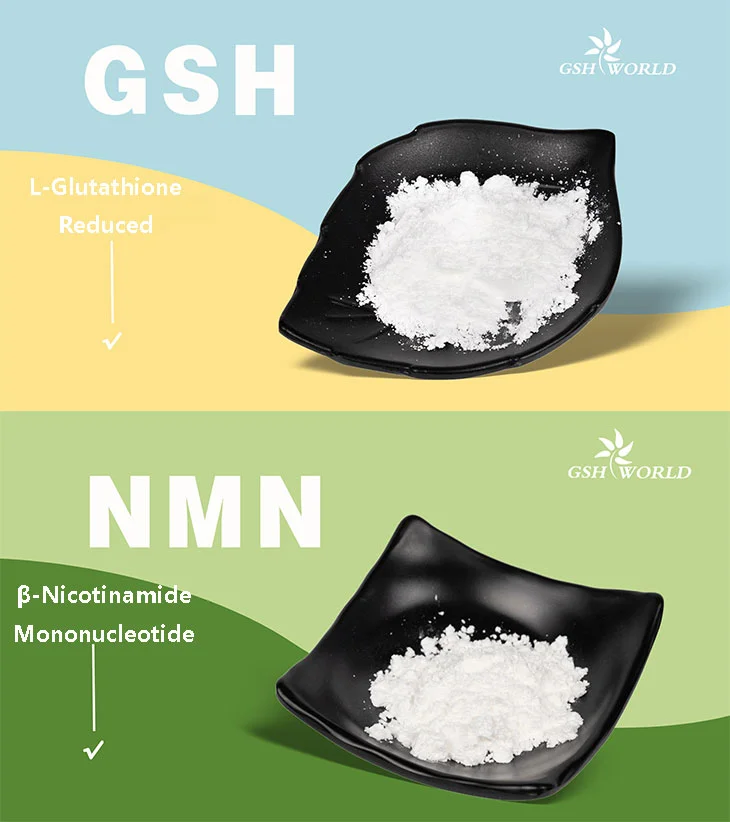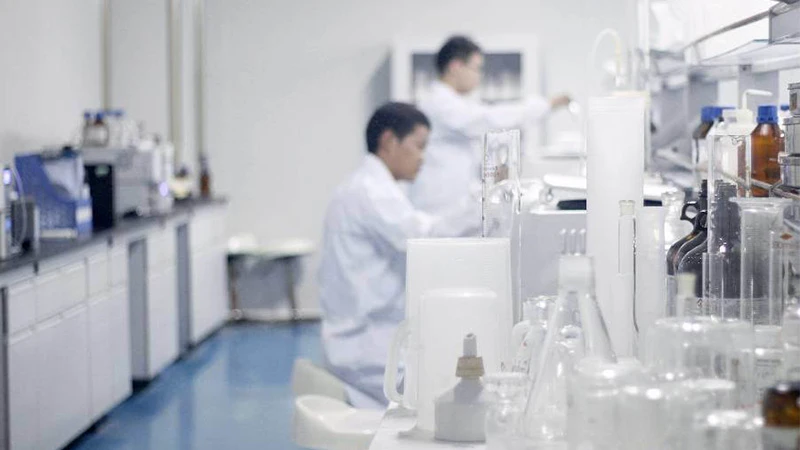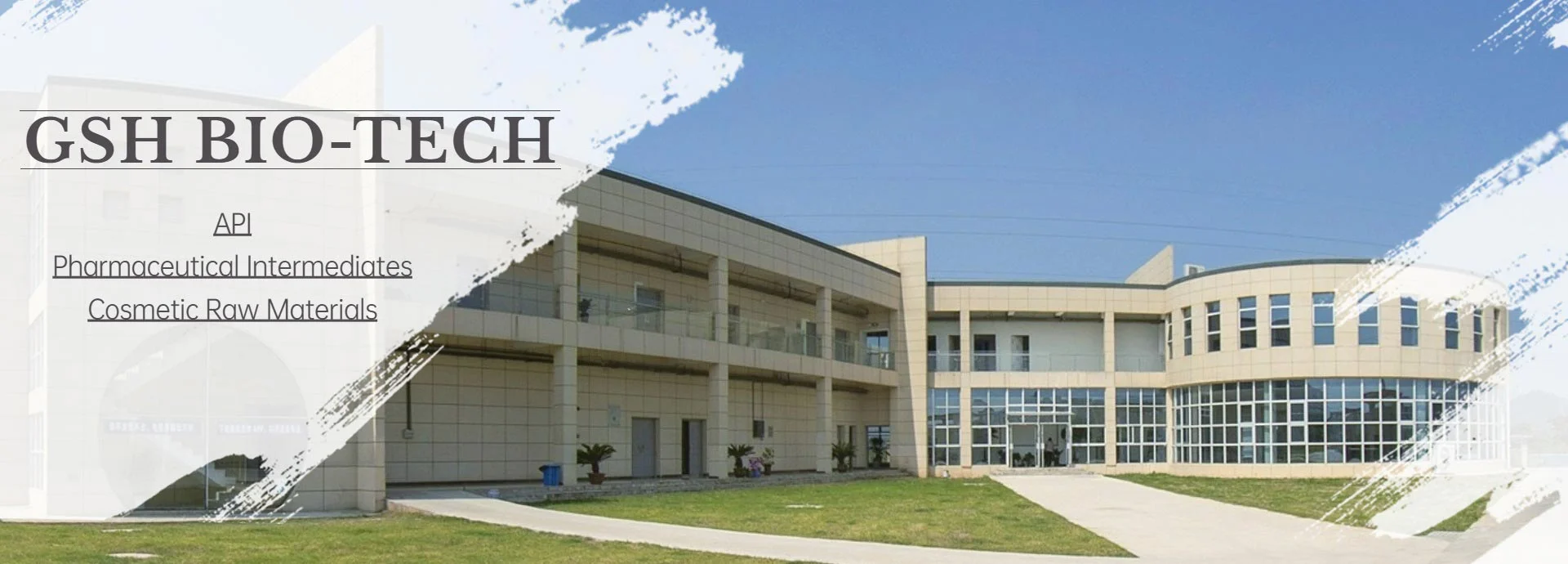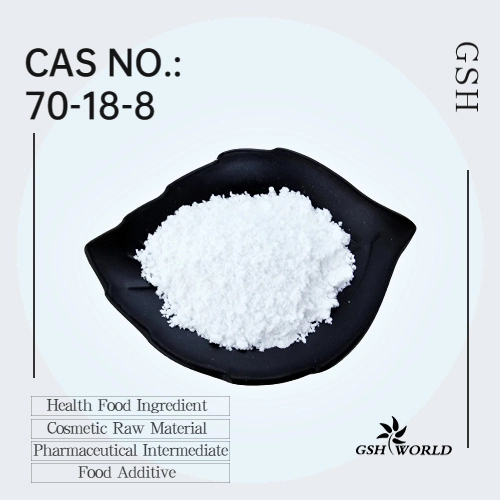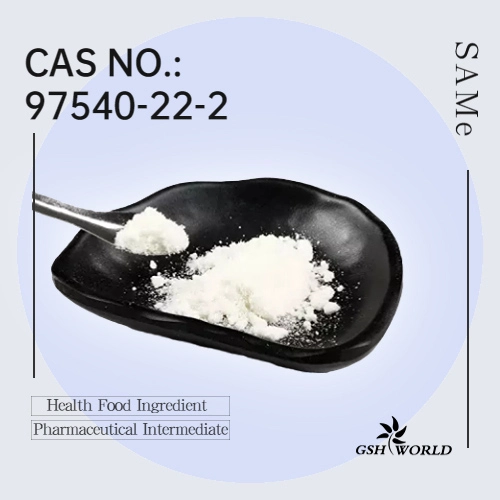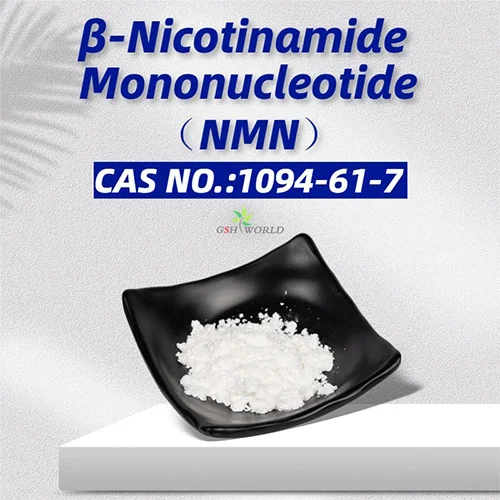NMN Protects Egg Cells from Reproductive Toxins
With every birth, we always hope for the emergence of a healthy child — “ten fingers and ten toes.” But some chemical substances interfere in some way with normal reproduction, adversely affecting sexual function and fertility in adult males and females, as well as causing developmental toxicity in the offspring. One such “reprotoxic” chemical is ethylene glycol butyl ether (EGBE). This common chemical used in both industrial and household products produces reproductive problems, such as testicular damage, reduced female fertility, death of embryos, and birth defects. However, how it influences female reproductive cells has not yet determined.
Here, Miao and colleagues from the Nanjing Agricultural University published an article in Frontiers in Cell and Developmental Biology that found that EGBE exposure resulted in the defective maturation of egg cells — oocytes — in pigs by compromising cell structure and the power generating structures called mitochondria. This led the oocytes to accumulate harmful oxygen-containing molecules called reactive oxygen species (ROS) and DNA damage, resulting in oocyte death. Of note, Nicotinamide Mononucleotide (NMN) supplementation rescued the defects caused by EGBE exposure via restoring levels of the vital compound nicotinamide adenine dinucleotide (NAD+), cell structural integrity, and mitochondrial function, eliminating the harmful effects of excessive ROS.
“Taken together, our observations illustrate that NMN supplementation is an effective strategy to protect oocyte quality against environmental pollutant-induced deterioration, contributing to improve the animal and human fertility,” concluded Miao and colleagues.
The common solvent ethylene glycol butyl ether is toxic to reproduction
EGBE is part of a class of organic solvents called the glycol ethers and is commonly used for hydraulic fluids, varnishes, and resins, and a component of various household products such as floor polishes and waxes, as well as cleaning compositions for upholstery, leather, and glass. But it is readily absorbed through the skin, lungs, and gut. The acute exposure to EGBE not only results in disorders related to the kidney, blood, brain, and metabolism but also leads to acute severe respiratory failure.
A previous study on EGME-exposed female workers shows the extended menstrual cycles and the time to pregnancy. Furthermore, investigation on frog oocytes has indicated that EGME influences the critical process of oocyte maturation prior to fertilization. The reproductive toxicity of EGBE has also been reported in female mice by showing subfertility. Nevertheless, how EGBE impacts female fertility and oocyte quality is unclear.
Ethylene glycol butyl ether disrupts oocyte maturation
In the present report, Miao and colleagues investigated the potential toxicity of EGBE on egg cell development (oogenesis) in pigs. To this end, they investigated the negative effect of EGBE exposure on the progression of oocyte cell division by testing the dynamics of oocyte cytoskeleton — the microscopic network of molecules that give cells shape. They looked at this because impairment of cytoskeletal assembly and dynamics often results in cell division defects. Their data showed that EGBE exposure disrupted cytoskeletal dynamics, which was coupled with the chromosome misalignment — an essential step for proper cell division to make sure each resulting cell gets complete copies of the genome. These findings demonstrate that the perturbed oocyte maturation induced by EGBE exposure is attributed to defective cytoskeleton dynamics.
The distribution of mitochondria, the primary energy generators for oocytes, has long been considered a critical indicator for evaluating oocyte maturation. Miao and colleagues revealed that the distribution and function of mitochondria were disrupted in EGBE-exposed oocytes, implying that EGBE exposure impairs oocyte maturation through these mitochondrial imbalances. Consequently, ROS levels were increased, a result of mitochondrial impairment, leading to the accumulation of DNA damage and occurrence of cell death, or what’s known as apoptosis, in EGBE-exposed oocytes.
NMN protects oocyte maturation from ethylene glycol butyl ether
Miao and colleagues recently had shown that supplementation of NMN restores the NAD+ level to ameliorate the quality of oocytes from aged mice via maintaining the chromosome number and fertilization ability. So, they wanted to see if this phenomenon would translate over to their mammalian counterparts. NMN supplementation (1 mM) reduced the incidence of aberrant cytoskeletal dynamics and chromosome misalignment induced by EGBE exposure in pig oocytes. This suggests that NMN supplementation can play a positive role in pig oocyte competency.
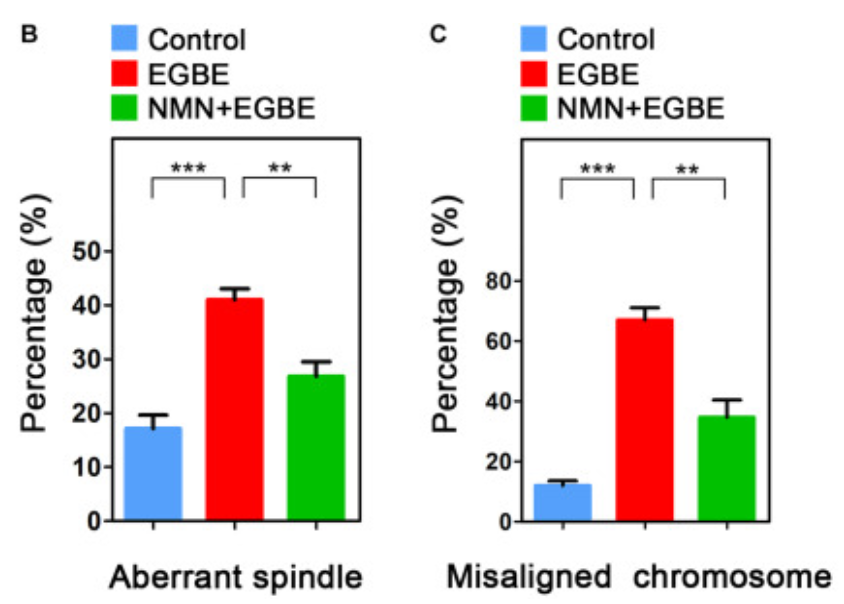
The researchers next examined the impact of NMN supplementation on the development of EGBE-exposed pig oocytes. What they saw was that NMN could recover the EGBE damage to restore the NAD+ level and mitochondrial distribution and function. This was coupled with a reduction in excessive ROS, DNA damage accumulation, and the occurrence of cell death (apoptosis) in the pig oocytes.
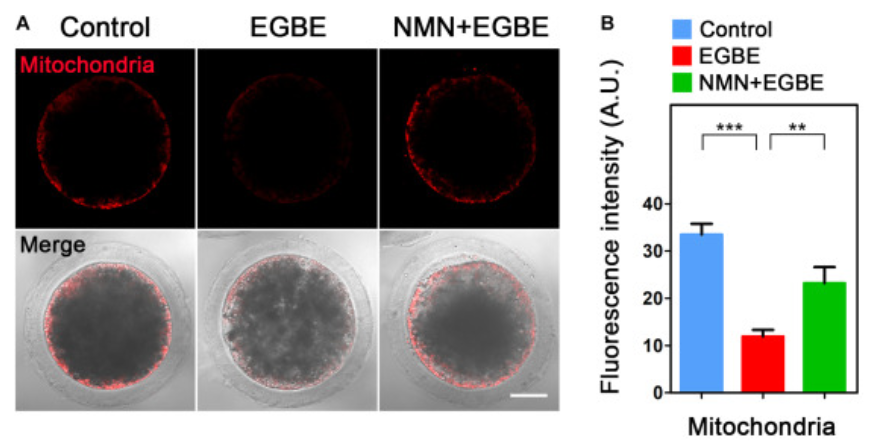
This shows that NMN supplementation rescued the EGBE-induced defects in oocyte cell development. Miao and colleagues summarize, “We provide a body of evidence documenting that NMN protects the oocytes from EGBE exposure by restoring the mitochondrial function and suppressing EGBE-induced production of ROS and apoptosis.”
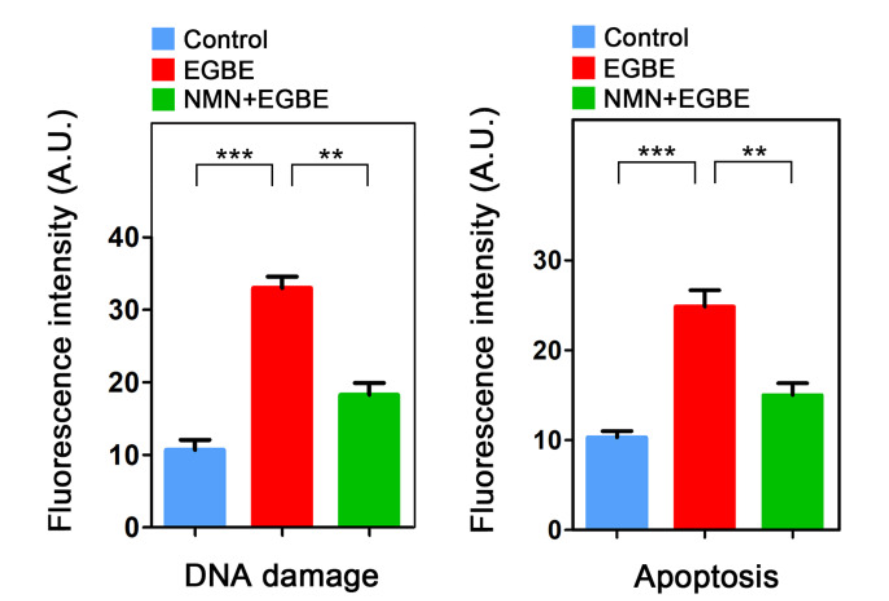
Can NMN help address infertility in the industrialized world?
While much of the decrease in fertility worldwide is by choice, an increasing number of couples, especially in industrialized countries, are finding conception more difficult and damaged babies more common. The research is quite clear that metals and chemicals, such as EGBE, in air, water, food, and health-and-beauty aids are damaging fertility in many ways. The findings from Miao and colleagues show that NMN supplementation is an effective strategy to address the growing infertility issue by protecting oocyte quality against environmental pollutant-induced deterioration. So, NMN supplementation may play a role in preserving the health of future generations of children and, ultimately, humanity as we know it.
(Miao et al. 2021| Front Cell Dev Biol) NMN has a protective effect on the EGBE-exposed oocytes. EGBE exposure leads to the aberrant cell structural dynamics and chromosome alignment during pig oocyte maturation by impairing the mitochondrial functions. NMN supplementation restores the oocytes from defects induced by EGBE exposure by improving the mitochondrial function and eliminating the accumulation of ROS, thereby inhibiting the occurrence of DNA damage and cell death (apoptosis).
*Special note - This article is for informational purposes only and cannot replace a doctor's treatment diagnosis and advice. It should not be regarded as a recommendation or proof of efficacy of the medical products involved. If it involves disease diagnosis, treatment, and rehabilitation, please be sure to go to a professional medical institution to seek professional advice.
PREVIOUS: Silver Quantum Dots Enhance Liver Absorption and Therapeutic Effectiveness of NMN and Metformin
NEXT: NMN Improves Cell Survival and Reduces Inflammation in Dry Eye Disease
by GSHWORLD
GSHWORLD is China Biological API Manufacturer. China NMN Supplements powder suppliers & best NMN benefits raw material Factory.


